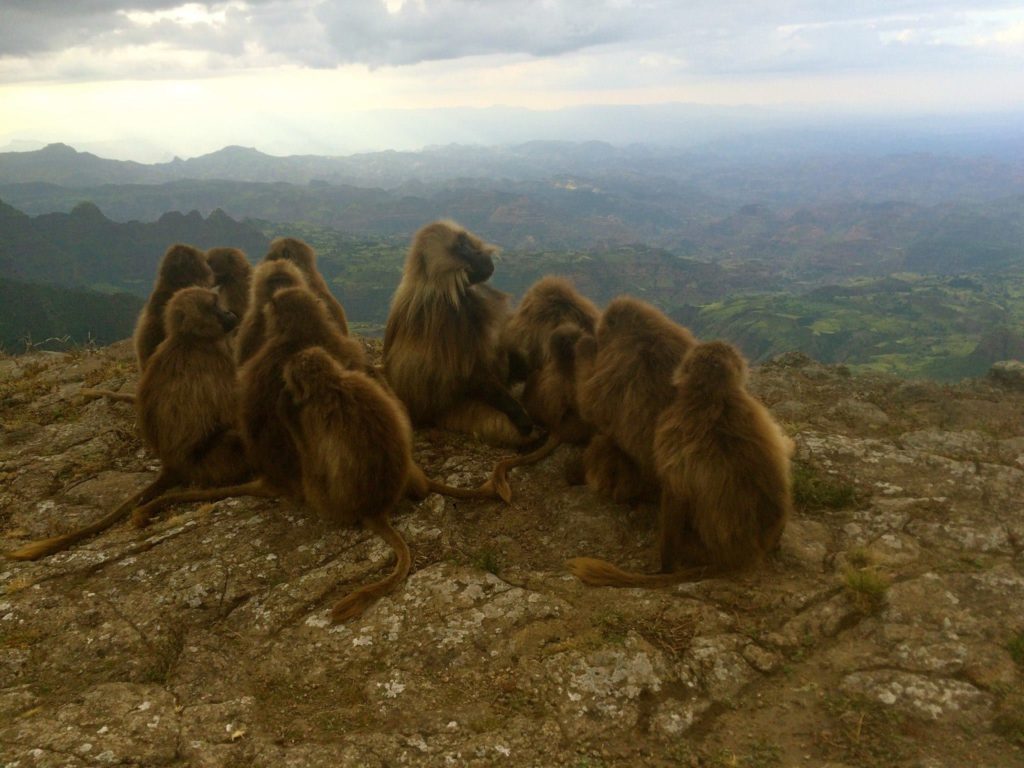Grantee Spotlight: Research Grant 2016 – Rachel F. Perlman
The energetics of male reproductive strategies in geladas (Theropithecus gelada).
Rachel F. Perlman w: www.rachelfperlman.com
Energy is classically considered a main limiting factor in the reproductive success of female primates, but not males. Yet males may also face energetic constraints, particularly when reproductive strategies involve direct competition. Such competitive behaviors are often mediated by testosterone, and because testosterone production is itself sensitive to nutritional shortfalls, testosterone-dependent behaviors and thus male reproduction is likely constrained by energetic condition. The way in which such constraints affect male reproductive success is, however, poorly understood.
My research examines the energetic dynamics of male reproductive strategies in geladas (Theropithecus gelada). Two kinds of gelada males are distinguished: harem-holding leader males siring 83-100% of offspring and bachelor males in all-male groups with no reproductive opportunities. To gain reproductive access, bachelors must takeover a leader’s unit. Because takeovers involve intense chases and fighting, energetic condition likely mediates the male reproductive success. Intriguingly, the annual takeover season occurs at the end of the dry season when the main food source (grass) is less plentiful. This suggests that bachelors may target leaders when they are energetically vulnerable.
I will collect data from a population of wild geladas living in the Simien Mountains National Park, Ethiopia. I will combine non-invasive hormone analyses (thyroid hormone, C-peptide, testosterone) with behavioral observations to examine seasonal energetic variation, how energetics relates to male social status, and whether energetic condition influences testosterone and male reproductive strategies. This project will shed light on how energetics constrains testosterone-mediated reproductive effort and ultimately shapes male reproductive success in wild primates.



